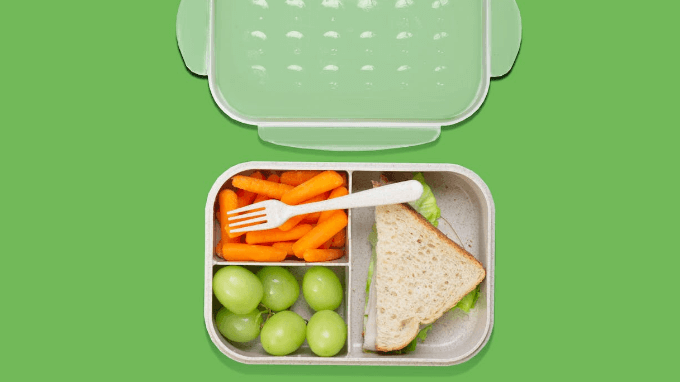Understanding Free School Meals Eligibility: A Complete Overview for UK Families

Providing regular, healthy meals for children has become more challenging for many families in the UK due to the increasing expense of living.
Free School Meals (FSM) have grown in importance in this context, but many parents still don’t know if they’re eligible or how to apply.
To the extent that you are a guardian or parent interested in learning more about it. You will be able to effectively traverse the Free School Meals qualifying criteria with the help of this tutorial.
What Are Free School Meals?
Free School Meals are meals provided at no cost to eligible children during school hours, funded by the UK government.
These meals are designed to ensure all children, regardless of household income, receive at least one nutritious meal a day.
Why must we care about them?
- More focused and better work in class: kids who eat well do better in school.
- Less stress on the wallet: Buying meals for less money frees up money for other important things.
- Allows everyone the same chances: closes the achievement gap between families with low and high incomes in terms of schooling.
The Difference Between FSM and Universal Infant Free School Meals
In England, all children in Reception, Year 1, and Year 2 receive meals automatically through Universal Infant Free School Meals—regardless of income. From Year 3 onwards, FSM become income and benefit-dependent.
Who Is Eligible for Free School Meals?
Eligibility for Free School Meals (FSM) is determined by a combination of household income thresholds and the type of government benefits a family receives.
However, it’s not always black-and-white, and many parents don’t realise they may be entitled. The following section provides a more detailed examination of the criteria used to determine eligibility and the specific individuals who are eligible.
1. Eligibility Based on Means-Tested Criteria
If the parents or custodians of children in Year 3 and above receive one or more of the following income-related benefits, they may be eligible:
2. Unique Circumstances
- Certain households may qualify for FSM due to their unique circumstances, such as grandparents serving as primary caregivers.
- Parents who are either temporarily unemployed or on zero-hour contracts.
- Parents who have recently separated or divorced are currently undergoing a financial transition.
Eligibility is not solely determined by the receipt of benefits over an extended period; it may also be indicative of your current financial situation.
Also Read: Raising a Family in the UK: Top 10 Health Benefits for Low-Income Households
How to Apply for Free School Meals
Here’s a comprehensive breakdown to ensure your application is complete and submitted properly.
Step 1: Check Your Eligibility
First, evaluate the benefits you receive and the income of your household. The website of each local authority frequently includes a quick eligibility checker instrument, in addition to providing guidelines.
In a matter of minutes, this will assist you in determining whether it is worthwhile to submit an application.
In the event that you are uncertain, it is preferable to submit an application and undergo an evaluation rather than forfeit out on potential assistance.
Step 2: Gather the Required Documentation
Before starting your application, have these documents ready:
- National Insurance number or National Asylum Support Service (NASS) number.
- A recent benefits statement, such as your Universal Credit award letter.
- Your child’s details, including full name, date of birth, and the school they attend.
- Any immigration status documents if you’re applying under NRPF or similar criteria.
Having accurate, up-to-date documents significantly reduces delays in the application process.
Step 3: Apply Through Your Local Council
In England, FSM applications are managed by local authorities. You can find your council’s application portal via the official government website: gov.uk/apply-free-school-meals.
Some councils also allow paper-based applications or provide assistance by phone if you’re not comfortable applying online.
Tips:
- Use an email address you check frequently to monitor the status.
- Double-check names and dates to ensure accuracy.
- If applying for multiple children, make sure each child is listed correctly.
Step 4: What to Expect After Submitting
You’ll typically receive a response within 10 working days, although some councils process applications more quickly during term time. If approved, the school is informed directly—there’s no need to notify them yourself.
In most cases, your child will start receiving meals the day after the school receives confirmation.
Step 5: Keep Your Information Up to Date
If your financial situation changes—such as losing a job or coming off benefits—it’s important to inform your council or reapply. Some schools also offer automatic checks, especially when Universal Credit is involved, but not all do.
Government Schemes Supporting Free School Meals
The UK Government’s involvement in Free School Meals goes beyond just funding lunches. Several schemes work together to offer holistic support to qualifying families.
1. Pupil Premium
Schools receive additional funding for every FSM-eligible child. This Pupil Premium can be used for:
- Extra tutoring
- Homework clubs
- Mental health support
- Learning materials
Example: A student eligible for FSM might receive free math tutoring twice a week funded through the Pupil Premium.
2. Holiday Activity and Food Programme (HAF)
Introduced in response to pandemic-related pressures, this initiative offers:
- Free meals during school holidays
- Activity-based learning experiences
- Access to local clubs and sports programs
3. Technology & Uniform Grants
Some local councils provide further support such as:
- Free school uniforms
- Technology grants for remote learning
- Subsidized public transport for students
These benefits make FSM eligibility a gateway to multiple support services for struggling families.
Universal Infant Free School Meals
While not means-tested, the Universal Infant Free School Meals scheme ensures that all children in Reception, Year 1, and Year 2 receive free lunches.
- Funded directly by the Department for Education
- No application required—schools automatically provide meals
- Parents are still encouraged to register for FSM if they receive benefits (to allow schools to claim Pupil Premium funding)
Children With No Recourse to Public Funds (NRPF)
Some children may qualify despite immigration restrictions. This includes:
- Families with NRPF status under human rights grounds
- Families supported by Section 17 of the Children Act 1989
- Children of Zambrano carers or those with pending asylum claims
If you believe your child may qualify under these conditions, speak directly to your school or local council. Special documentation may be required.
Also Read: How to Apply for Student Grants and Scholarships in the UK
How Free School Meals Are Provided in Schools
Once approved, Free School Meals are delivered to eligible children in a way that preserves their dignity and ensures equal access to food. Modern schools have refined the way FSM are distributed to prevent any form of stigma or exclusion.
1. Systems of Payment Without Cash
The majority of UK schools currently employ cashless catering systems, which enable students to access meals through a smart card, PIN code, or biometric scan.
It is impossible for anyone to determine who receives a free meal and who does not, as these systems are utilized by all pupils, not just FSM recipients.
2. Meal Choices and Pre-ordering
Schools typically offer:
- A hot meal (meat and vegetarian options)
- A cold meal (sandwiches or wraps)
- Side options like salad or fruit
- Dessert (usually fruit, yoghurt or a baked item)
Parents can often pre-order meals online, allowing them to make nutritional choices in advance. FSM children have access to the exact same menu as paying students.
3. Staff Training and Sensitivity
Teachers, lunchtime supervisors, and school admin staff are trained to manage FSM discretely. This includes:
- Handling meal complaints or concerns with sensitivity.
- Encouraging all children to enjoy their lunch period.
- Being proactive in supporting children who may feel anxious about claiming their entitlement.
4. Integration with Broader School Services
FSM data is often used to:
- Identify students eligible for additional learning support.
- Access resources under other Government Schemes, like free holiday clubs.
- Provide tech access for remote learning (during pandemics or long-term illness).
What If Your Circumstances Change?
If Your Income Drops:
Apply or reapply immediately—you can claim FSM any time during the school year.
If You Find Employment:
FSM are not instantly revoked. Some schools continue for a term after income changes, particularly if you’re in a transitional employment period.
If You’re Denied:
- Double-check the eligibility criteria.
- Request a review or appeal.
- Contact a welfare advisor through your local Citizens Advice Bureau.
Tips to Ensure Your Child Doesn’t Miss Out
- Sign up even if your child is in Reception–Year 2 and automatically receiving meals. As a result, the school will be eligible to receive Pupil Premium funds.
- Make sure to check eligibility every school year.
- Be sure you maintain all benefit award letters and National Insurance details current.
- Get in touch with the school; many of them have admissions officers that can help with the application process.
Conclusion: Make the Most of Your Free School Meals
To help your child succeed in school and in life, it is important to know if they are eligible for Free School Meals.
More than just a means of subsistence, these lunches open doors to a number of government programs that are working to ensure that all children in the United Kingdom have equal access to quality education.
Get in touch with your local council ASAP to begin the application process if you believe your family is eligible.
You can give your child the best chance they deserve by being well-informed and taking initiative.







